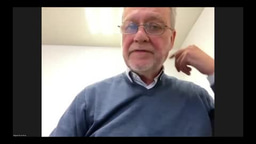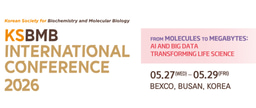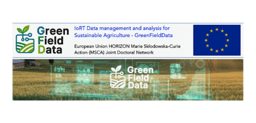Reflections from Fiona Watt, EMBO's new Director

As I take over as EMBO Director I am grateful for the opportunity to reflect on EMBO’s role in supporting young researchers now and in the future, and also on some of the challenges facing science and society in Europe.
My association with EMBO goes back to my days as a PhD student, when I attended an EMBO Workshop and first experienced the thrill of discussing cutting-edge research in an informal and supportive setting. At the time I couldn’t believe that the invited speakers would happily sit next to us students at mealtimes and debate science as equals. And the connections that I made at that first workshop shaped my career for years afterwards. I have carried the experience with me ever since – and what I have missed most during the COVID-19 pandemic is the opportunity to bounce ideas off colleagues over a meal or a walk after conference sessions. Spontaneous, unplanned collisions of thoughts and ideas are as important for young scientists now as in the past, and EMBO has a key role in catalysing those collisions. We will continue to play that role, while incorporating the positives of the growth in online conferences, not least the reduction in air travel and making events accessible to people who do not have the financial support to attend in person.
Do not be frightened of the future
My reflections on how EMBO can support young researchers are inevitably shaped by my own experiences. I have worked in research institutes and in universities, mainly in the UK. I have benefitted greatly from postdoctoral training at the Massachusetts Institute of Technology and from numerous collaborations with scientists around the world. One of the things that I often tell young researchers is that the people you meet early in your career will be around for years to come – those connections are incredibly important, no matter what career path you choose. EMBO Postdoctoral Fellowships, exchange grants and the Young Investigator Programme provide wonderful opportunities for scientists to gain experience of different ways of doing science and to forge international networks that will foster the science of the future.
By now I have trained over 50 PhD students from a variety of countries. Many have remained in academic research and are running their own laboratories. It always surprises me how quickly my students become Professors! But a PhD is a gateway to many different and satisfying careers – not only traditional careers, such as scientific publishing or jobs in pharma and biotech, but also careers I would not have dreamt of in the past – venture capital, advising government, shaping research funding and policy, journalism and creative writing, public engagement and patient advocacy to name a few. So my advice to any PhD student or postdoc is: do not be frightened of the future. Life is not a race and careers are rarely linear. Failure can be a springboard to something intriguing you would never have dreamt of, and – more practically - unemployment rates amongst PhDs are low in most countries. For example, in the UK fewer than 2% of PhDs are unemployed three years after graduating. So try not to worry. Do not stay in research unless that is your passion – there are (dare I say it?) easier ways to earn a living that offer more job security and shorter hours. If you decide to leave it should be a positive choice, rather than exiting because you anticipate that you will not make it later on. This point echoes the advice of Sheryl Sandberg in her book ‘Lean In’ (2013): ‘Don’t leave before you leave’.
To promote diversity in science, dialogue is key
Having said that, the research landscape has changed significantly during my career, not least for women. When I was a PhD student there was a period when I was the only female student in my University Department; when I told my PhD supervisor I was getting married he told me that I could not expect him to find a postdoc position for my husband (I didn’t); and when I interviewed for my first PI position I was asked whether I intended to get pregnant (I didn’t … but fast forward a few decades and I now have three children who have, unintentionally, made me a better scientist). These experiences should be alien to most women scientists in 2022. However, unlike many of my colleagues, I don’t put my gender identity (‘she/her’) after my name because of the challenges I faced in being taken seriously as a woman scientist. The FEBS/EMBO Women in Science Award highlights contributions of female scientists to life science research and provides inspiring role models for future generations of women in science. The award is as relevant today as when it was launched in 2007.
The global ‘Black Lives Matter’ movement has stimulated scientists around the world to think more deeply about the importance of diversity in science. There are certainly lessons to be learned from the advances of women in recent decades – something I reflected on last year while writing the obituary of the cell biologist Zena Werb, whom I had interviewed for the Journal of Cell Science back in 2004. However, whereas women make up roughly 50% of the population – and now 50% of life science PhD students in many countries - researchers from different cultural and ethnic backgrounds are a minority in the population of most European countries and particularly so in science. Scientists from different backgrounds may face different challenges. Furthermore, diversity of socio-economic background, neurodiversity and physical ability/disability all need to be factored into the mix. Several years ago I convened a workshop of under-represented minority PhD students to identify new ways to support their academic careers. From that experience and others, my view is that although it can sometimes feel daunting to know how to promote diversity in science, dialogue is key – acknowledging when things need to be improved, listening, talking, and not being afraid to make occasional mistakes.
Small scale investments can also make a big difference
One of the things that I am looking forward to at EMBO is learning more about the specific challenges that researchers face in different member countries and the different interventions that may be helpful. For example, I have seen at first hand the transformative effect that ESET, the Slovak internet security company, is having through the ESET Foundation, which has the goal of celebrating great Slovak science to show that science warrants a more prominent place in Slovak society. At the most recent ESET Science Award ceremony the country’s president, prime minister and the mayor of Bratislava were all present – a level of interest and participation that scientists in some countries can only dream of!
I am joining EMBO after almost 4 years as Executive Chair of the UK’s Medical Research Council, where I was responsible for an annual budget of over £700 million and had the privilege to fund a number of internationally outstanding institutions, including the Francis Crick Institute, the MRC Laboratory of Molecular Biology and UK Biobank. What I have learned is that small scale investments can also make a big difference – I am particularly pleased that I was able to launch a scheme to enable established clinicians to spend more time on research, and one in which teams of scientists are able to upskill others in data carpentry. These two different schemes address two challenges that young researchers face now. One is to embrace the power of experimental medicine to accelerate improvements in human health, and the other is that biologists who lack a basic understanding of computational methods risk losing the ability to explore their own data.
Politicians, policy makers and others often highlight the importance of porosity, meaning the ability of scientists to move between sectors. I am optimistic that we are going in the right direction in terms of early career researchers. Examples of successful interventions include giving PhD students the opportunity to experience different sectors, compete for small grants to pursue new ideas, or carry out postdoctoral research in partnership with industry. Although a move from academia into industry is often considered a one-way trip, I know of several examples of highly successful scientists transitioning in both directions.
Improve the way we share
Finally, one of the key challenges that young scientists face is communicating and sharing their data openly and honestly. For that reason, I am excited about being involved with EMBO Press, which is well positioned to provide global standards for authors on a par with the role that EMBL-EBI plays for large data resources. I have extensive experience of scientific publishing, first as editor in chief of the Journal of Cell Science and then as a deputy editor at the launch of the open access journal eLife. I also sit on the advisory boards of the bioRxiv and medRvix preprint servers and have been delighted at the role that preprints have played in sharing the most up to date information about COVID vaccines and clinical trials. EMBO Press is at the forefront of innovations in science publishing, and I am happy that my most recent publication was submitted through Review Commons – this enabled us to receive reviews of our paper prior to deciding which journal to submit to. This is one of a number of innovations that will, I believe, improve the way we share data.
I’d like to end with one more challenge that young scientists face. This is also about science communication, but not peer-to-peer, rather communicating with the rest of society. We are rightly pleased at the role of scientists in explaining COVID-19 from the first reports to drug treatments for hospitalised patients and the roll out of vaccines. However, we don’t always get the tone right or show sufficient sensitivity to the public’s concerns, for example over sharing electronic health records. Writing in the UK newspaper The Times in December, Libby Purves recently said: ‘It’s vital that scientists speak our language. Insider jargon and jolly simplifications are no substitute for skilful communication in the fight against disinformation’. I see this as a key challenge and one that EMBO is well placed to meet.
Photo by Daniel Bowman on Unsplash





Join the FEBS Network today
Joining the FEBS Network’s molecular life sciences community enables you to access special content on the site, present your profile, 'follow' contributors, 'comment' on and 'like' content, post your own content, and set up a tailored email digest for updates.